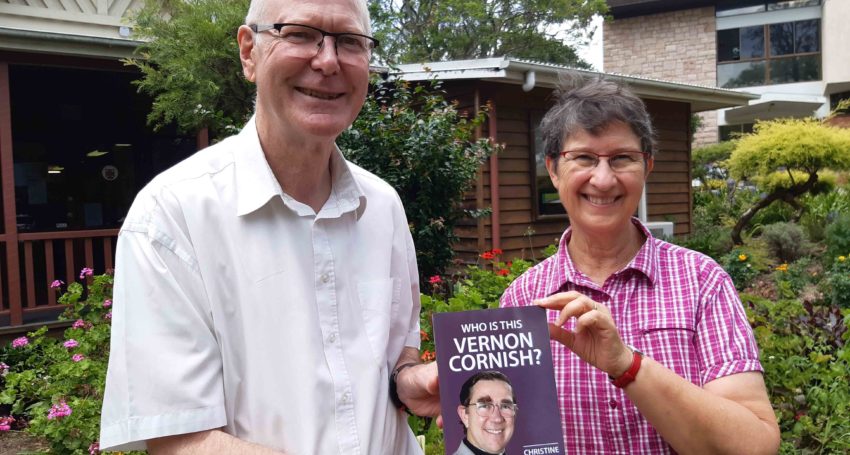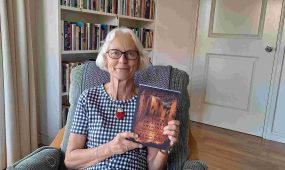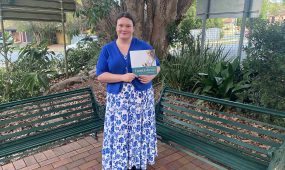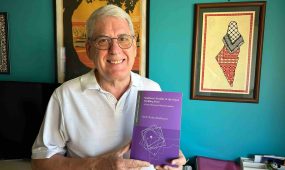Who Is This Vernon Cornish?
Books & Guides
Vernon was a natural entertainer…with the capacity to generate a laugh, not at others’ expense or at the faith, but laughter at things as a sign of the redemptive presence of the risen Christ. Ledger’s biography explores this aspect well, along with two other strengths that any ordained person might aspire to,” says Bishop Jonathan Holland in this biography review

Anglicanism has a tendency to produce in its members a unique understated goodness. A good example is Vernon Cornish. He is described early on in this biography as a “solidly good person” (p.5). One is reminded of the description given to Barnabas in Acts: a “good man, full of the Holy Spirit and faith” (Acts 11.24).
This biography by Christine Ledger follows a chronological narrative of Cornish’s life. Born in 1931, he had a happy childhood as the eldest son in an Anglican clergy family, despite his mother having some debilitating sickness for some years. He took up journalism, although acting and drama were his passions, before offering for the priesthood. Ordained in 1957, he served first as a chaplain at The Southport School, then rector of St Matthew’s in Sherwood, rector of St Luke’s in Toowoomba, Dean of Perth Cathedral and Assistant Bishop of Perth. In 1981 he was elected Bishop of Tasmania, but never had the chance to take up the office, dying suddenly and unexpectedly of a brain haemorrhage in January 1982. He is one of a string of ordained Anglicans who seemed to have so much to offer the Church and the world, yet died prematurely. One thinks of Frank Coaldrake, John Gaden, Graham Delbridge and David Penman.
Advertisement
I met Vernon a few times in Perth when he was Dean, but did not appreciate his background in drama and theatre. Vernon was a natural entertainer – in the best sense of entertainment – with the capacity to generate a laugh, not at others’ expense or at the faith, but laughter at things as a sign of the redemptive presence of the risen Christ. Ledger’s biography explores this aspect well, along with two other strengths that any ordained person might aspire to: he was a sensitive and loving pastor and he was a gifted communicator, skills which served him well in every appointment given to him.
His ministry was a hinge between two very contrasting times in the Church’s life. He grew up and was ordained in the halcyon days of the 1950s and 60s, a time when congregations were growing, churches were being planted, hundreds of children were in Sunday Schools and churches in the suburbs were providing a range of social activities not otherwise available to the young families settling there. Then he participated as a more senior cleric in the days that marked the numerical decline and increasing marginalisation of the Church in the 1970s and 80s. Yet even in those times, Cornish was an effective clergyperson, dealing sensitively and with good humour the abrasions – some of them quite dismaying – of school, parish and cathedral life. Ledger chronicles these abrasions well.
Advertisement
There are some areas I would have liked to see explored a little more in the biography. Why was his father so resistant to him as an 18-year-old taking up a prestigious acting scholarship in London and how did Cornish integrate within himself this point-blank patriarchal refusal for him to develop what was both his natural talent and his passion? Did it not affect his relationship with his father, even a little?
As well, Cornish comes across as a little too virtuous. Perhaps he was. On the few occasions I met him he struck me as a balanced and warm man, good humoured and not easily flappable. Yet I imagine he was as flawed as any of us, although any flaws are not very evident. Is it the case that deep tragedy alone really reveals our most honest and true selves? There seems to have been little or no deep tragedy to explore in Cornish’s life, but lots of challenges and difficulties, which he rose to and resolved with pastoral sensitivity, personal equanimity and sociable goodwill.
This biography brings to life one who was a good man, full of the Holy Spirit and faith, whose untimely death at the age of 51 brought a great loss to his wife Dell and family, his friends and the Church. Yet his goodness shines through in that shorter life and that should encourage all of us who seek to tread the same path of discipleship of Jesus Christ.
Christine Ledger, 2020. Who Is This Vernon Cornish? G&C: Brisbane.
Jonathan Holland is Principal of St Francis College, Milton. He will be teaching ‘Early Church History’ and ‘Christian Worship’ this year between March and June. For more information, visit the St Francis College website or email jholland@anglicanchurchsq.org.au





